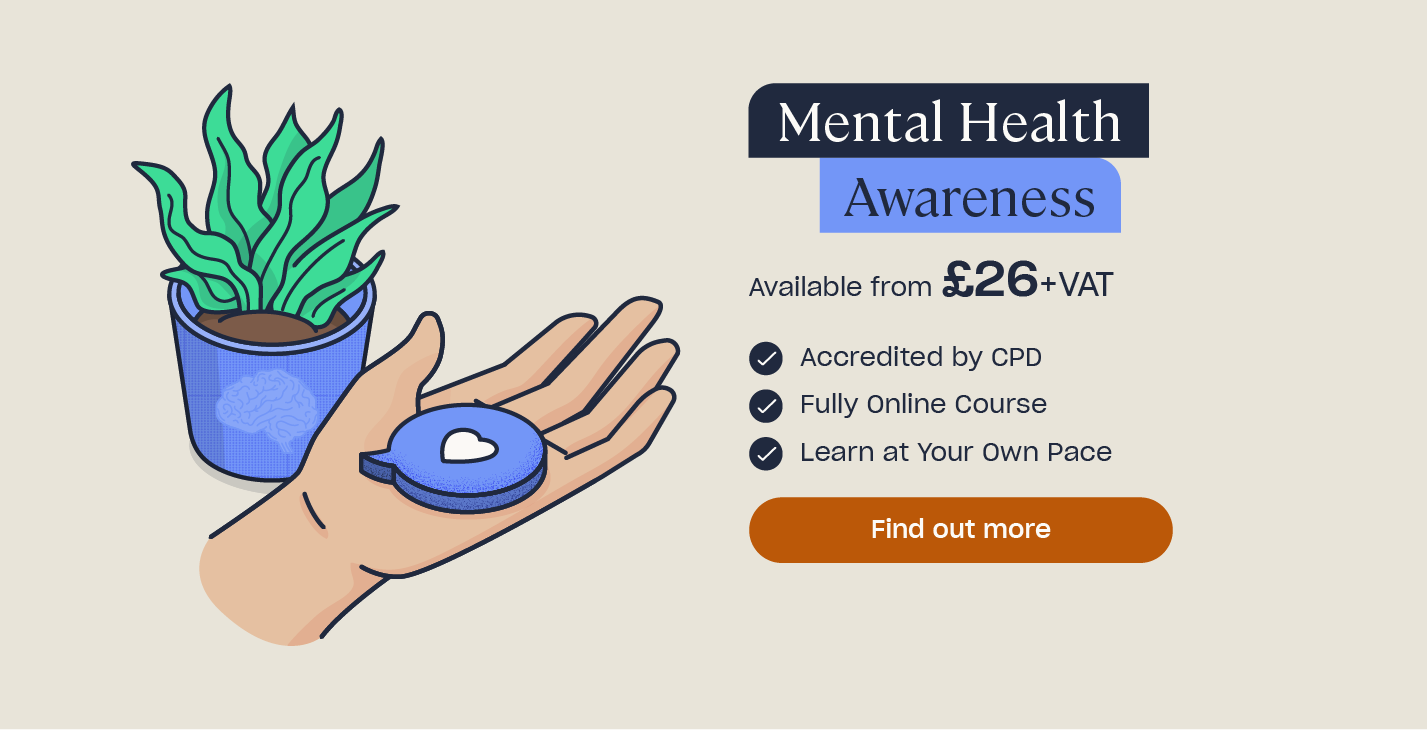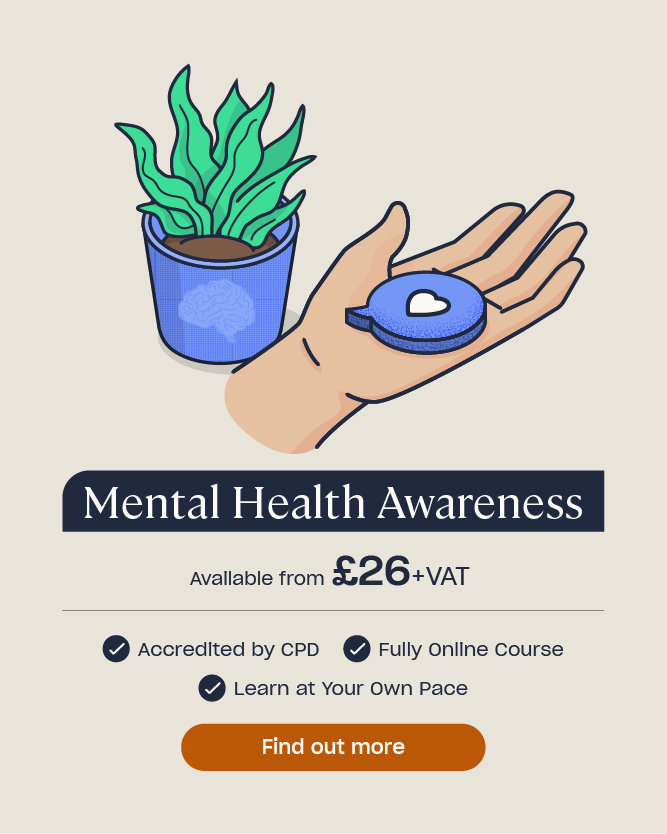The Benefits of Exercise on Mental Health
We all have mental health, just as we all have physical health. Our mental health is how we’re feeling and how well we’re able to cope with the natural highs and lows of life. Promoting positive mental wellbeing is important as it contributes to feeling good about ourselves, being able to navigate challenges and grasp opportunities, and having a sense of purpose and value.
Physical exercise has been proven to have huge potential in improving our mental wellbeing, with studies showing that people who exercise regularly experience better mental health and emotional wellbeing, as well as lower rates of mental illness.
In this article, we will explore the link between physical exercise and mental wellbeing and how they interact, explain why this is so important for our overall health, and recommend some ideas for how to use physical activity to improve mental wellbeing.
The Relationship Between Physical Activity and Mental Health
Physical activity involves any movement of the body that uses the muscles, increases your heart rate or breathing, and expends energy. Luckily, there are endless possibilities of ways in which to do this and therefore there’s an option that everyone will enjoy.
Physical exertion and mental health are directly connected due to changes in chemical activity that occur in the brain during and after exercise. This includes the increase of ‘happy hormones’ such as serotonin and the release of endorphins, as well as a reduction in stress hormones such as cortisol. As a result of these chemical changes, physical activity is shown to have a hugely positive effect on our mental wellbeing.

It’s important to remember, however, that everyone’s experience with mental health is unique, and therefore the impact of physical activity on mental wellbeing will vary for each individual. It’s normal for our mental state to fluctuate between positive and negative as we experience natural changes in mood and circumstance. However, there are a variety of named mental health issues that occur when there’s a clinically significant disturbance in an individual’s mental wellbeing. You can learn more about the different types of mental health in our article here.
Want to Learn More?
Our range of mental health courses, including Mental Health Awareness and Child Mental Health Training aim to increase your understanding of mental health, common mental health conditions and how to promote positive mental health.
Why is Physical Activity Important for Mental Health?
In the UK and beyond, mental wellbeing is increasingly being discussed as something that we need to actively maintain and improve, as almost everyone suffers from ill mental health at some point in their life. New research among 2,000 adults in England has revealed that around 4 in 10 people report having trouble sleeping, feeling less confident, and having less energy due to anxiety.
Despite physical activity being repeatedly shown to improve mental health in a myriad of ways, less than half of adults are aware that it’s proven to reduce symptoms of anxiety, alleviate stress and distract from negative thoughts.
These statistics demonstrate the importance of discussing mental health openly and frequently, to help raise awareness and fight ignorance or stigmas. You can find suggestions for how to talk about mental health in our article, here.

How Does Exercise Improve Mental Health?
Releases Feel Good Hormones
Although it can be hard to motivate yourself to exercise, it’s unlikely that you’ll regret it once you start. This is due to the release of ‘feel-good’ chemicals during exercise, including mood-boosting endorphins, endocannabinoids, which improve sleep and reduce anxiety, and memory improving dopamine.
Improves Confidence and Self Esteem
Self esteem is a strong indicator of someone’s mental wellbeing. Exercise gives you a way to frequently achieve goals and gain a sense of pride that you’ve pushed yourself to move despite it being difficult. This all contributes to improving self-esteem almost immediately.
Improves Sleep
People who regularly exercise are shown to sleep better and feel less tired during the day. Regular exercise also improves the symptoms of insomnia and increases the amount of time you spend in the deep, restorative stages of sleep.

Improves Memory, Concentration and Focus
Exercise increases your heart rate and causes more blood to flow to the brain. This promotes cell growth which allows for greater focusing abilities. Additionally, physical activity releases proteins in the brain which the hippocampus, the area of the brain responsible for retaining information, is very susceptible to.
Reduces Stress and Anxiety
Physical activity helps to control the levels of stress hormones in our body, such as cortisol and adrenaline, and acts as a means of release for negative emotions building up inside of us. It also helps to relieve physical tension, which is often a side effect of stress or anxiety. If you’re interested in other ways to help manage stress, take a look at our article, here.

Promotes Social Connection
Certain physical activities make it easier to socialise and form connections. For example, sports teams and local groups, like walking or running clubs, are a great way to meet new people. Socialising with friends is an effective form of self-care, helping us to establish strong, healthy connections and support networks.
Contributes to the Treatment of Mental Illness
Not only is physical activity proven to help maintain mental wellbeing, it has also been shown to be an effective form of treatment for mental illness, even more so than medication in some cases. A recent study demonstrated that physical activity interventions of any kind can significantly reduce symptoms of depression and anxiety in all clinical populations. Importantly, the research shows that it doesn’t take much for exercise to make a positive change to your mental health, with short to mid-duration bursts having a greater effect than long durations of exercise.
How Does Lack of Exercise Affect Your Mental Health?
Whilst exercising has hugely positive effects on mental wellbeing, a lack of exercise can have the converse effect and contribute to a downturn in mental health. In fact, research suggests that just 10 days without fitness can cause the brain to start losing cognitive function. Additionally, whilst it can be harder to motivate yourself to exercise when you’re feeling low, if you don’t engage in physical activity your mood could suffer even more.
Some of the negative impacts of a lack of exercise include:
- A higher risk of anxiety and depression.
- Difficulty to think positively or see the bright side.
- Trouble with problem solving.
- Development of self-deprecating thought patterns.
- Reduced ability to manage stress.
The NHS recommends doing 150 minutes of physical activity per week in order to get the physical and mental health benefits that exercise provides. Despite this advice, however, it’s been found that 4 in 10 adults are currently not meeting this target.

How to Get Started with Using Physical Exercise for Your Mental Health
If you’re at the beginning of your fitness journey, it’s best to start slowly with short durations of low impact exercise such as walking or playing a gentle sport like golf or badminton.
By easing yourself into physical activity, you will avoid becoming demotivated by the difficulty and pressure of trying to do too much too soon. Instead, it’s better to gradually increase the duration and strenuousness of your exercise and, if you maintain regular activity, you will soon begin to see improvements in your abilities which will have a positive effect on your self esteem and overall wellbeing.
The Best Exercises for Mental Health
First and foremost, it’s important to remember that the best exercise for your mental health will be one that you enjoy. This is the key to making physical activity a healthy habit that you can maintain over time. With that in mind, here are a selection of mood boosting exercises that you could try:
Walking
Although walking is sometimes disregarded as not being ‘proper’ exercise, this is a myth and there are in fact many physical and mental benefits to going for a walk. Some of the advantages of walking is that it’s a free activity and one that is low impact and therefore can be enjoyed by most people. Additionally, walking is a good way to get outside into fresh air and experience nature, both of which have also been shown to positively influence mental wellbeing.

Yoga
Whilst yoga is a form of physical exercise that gets the body moving, its core focus is on establishing a connection with your mind and breathing to establish a state of relaxation and focus. Thus, it has long been recognised for its benefits on mental wellbeing. This form of exercise is great for easing stress and tension, lowering blood pressure, and boosting serotonin. Therefore, it can be effective in reducing symptoms of depression and anxiety.
High Intensity Interval Training (HIIT)
If you’re looking for a more intense and challenging form of exercise that can be practised in short durations, a HIIT workout may be the perfect option. This form of physical activity raises the heart rate considerably and therefore gets the blood pumping around the body, increasing blood flow to the brain and releasing endorphins.
Running
Running is perhaps the most celebrated and best recognised form of exercise to combine physical fitness with mental wellbeing. Similarly to walking, it is free and often gets you outside. Famously, running can produce a phenomena known as ‘runner’s high’ which occurs when the body is flooded with feel-good chemicals during or shortly after a run. Many people describe this feeling as a state of euphoria or bliss; not only is your mood boosted but the feeling can also reduce pain and anxiety substantially.
If you’d like to start running but are not sure how to begin, the NHS Couch to 5k is a great running plan for absolute beginners, which will help you work up towards running 5k in just 9 weeks.

Boxing and Martial Arts
Boxing, or any other form of martial art activity, is not only a great form of physical exercise but also helps to let off steam and release pent up negative emotions such as stress. Additionally, martial arts is a great form of exercise to raise self esteem and confidence as it builds visible strength and provides regular trackable improvements.
Dancing
There are many different types of dance and all of them have varying benefits that relate to mental health. Ballet, for example, has similarities to yoga in being grounded in mindfulness and self-awareness, and many forms of dance such as hip hop and zumba are free flowing and intense so raise your heart rate and produce endorphins. Additionally, dance can be an extremely social form of exercise, as it’s often partaken in group classes and involves close collaboration. Thus, it’s a good way to form connections and build a strong support network.
These examples describe just a few of the many forms of physical activity available to try, but the options are almost limitless. Your local leisure centre is a good place to start, as they often offer a variety of sports and fitness classes for anyone to join. Whilst each type of physical activity benefits wellbeing in slightly different ways, all forms of exercise have a hugely positive impact on maintaining and improving mental health.

Your mental health is just as important to care for as your physical health, and exercise has been shown to have a direct impact on improving and maintaining mental wellbeing. There are so many different ways to take part in physical activity, so why not try a few various forms and find the ones that work best for you.
Further Resources:
- Types of Mental Health
- How to Talk About Mental Health
- Mental Health Myths vs Facts: What are the Realities?
- Stress Management Activities to Try at Home
- The Link Between Food and Mental Health
- Mental Health Awareness Course











